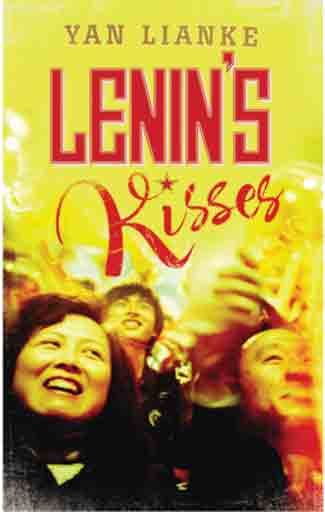
Lenin's Kisses by Yan Lianke (Chatto & Windus)
In a blistering essay, published last year in The New York Times after a road-widening project demolished Yan Lianke’s Beijing home and almost 20 Chinese publishers rejected his most recent book because it was too politically sensitive, the novelist reflected darkly, “I don’t know if their newly acquired wealth makes the Chinese people truly believe that warm clothes and a full stomach are more important than rights and dignity.”
Yan was born in 1958 in central China’s Henan Province, regarded as the heartland of Chinese civilisation, yet blighted by some of the most tragic events in the country’s recent history, including the “Plasma Economy”, a local-government-run blood-selling scheme in the 1990s that infected many thousands of poor rural Henanese with HIV: the subject of Yan’s banned 2006 novel The Dream of Ding Village.
In response to his thorny question, Yan admitted there was “no clear-cut answer”, yet it’s one that also resonates through Lenin’s Kisses, a sprawling, strange and darkly funny novel first published in Chinese in 2004 as Shou huo, a term that literally means “to receive life”, but is translated in the book as Liven, both the name of the fictional village where much of the story is set, and a word in its purported regional dialect meaning enjoyment, pleasure and sex.
Widely acclaimed in China – it won the Lao She award, a national literature prize – and now translated expertly into English for the first time by Carlos Rojas, this book explores the absurd contradictions of the country’s headlong drive towards hypercapitalist Market-Leninism and evinces a deep sympathy for the country’s long-suffering peasants, regarded as superstitious and backward by successive political campaigns, yet represented in the novel as far more rational than the corrupt Party cadres who might hope to educate them.
Lenin’s Kisses follows local official Liu Yingque’s scheme to relocate Vladimir Lenin’s embalmed corpse from Moscow’s Red Square to a mountaintop in northern China, where it will be installed in an opulent replica of the Chairman Mao Memorial Hall in Beijing. Liu hopes that the shrine will attract incalculable riches to his county through tourism. To raise the money to buy the revolutionary relics from Russia, he harnesses the unusual talents of Liven’s residents – the village is imagined as a kind of refuge from the forward march of history, founded by disabled drop-outs from a mass relocation – and forms a travelling show.
Liu’s plan is a goldmine: Liven’s disabled performers have extraordinary compensatory endowments that amaze audiences around China – a one-legged man leaps great distances; a blind woman can hear a feather drop; a polio victim squeezes his foot into a bottle and dances on stage. Yet in a reversal of the hoary Marxist axiom, this satire about greed and debasement sets out as farce and draws to an increasingly brutal and tragic conclusion.
Like the organic, labyrinthine forms of China’s narrow alleyways – so disliked by Party bureaucrats in their quest for a modern, legible terrain to administer and rule – Yan’s narrative unwinds peculiarly, through irregular lists of footnotes, chronological oddities and intentionally missing chapters, serving to remind us of the suppressed historical traumas that echo through the novel in scattered, vivid memories of the Great Leap Forward and the Cultural Revolution.
In his angry 2012 article, Yan wrote that “People live like dogs in this society. I dream of being able to bark out loud in my books, and of turning my barking into exquisite music.” This compelling, deeply felt novel might have achieved that unsettling aim.

